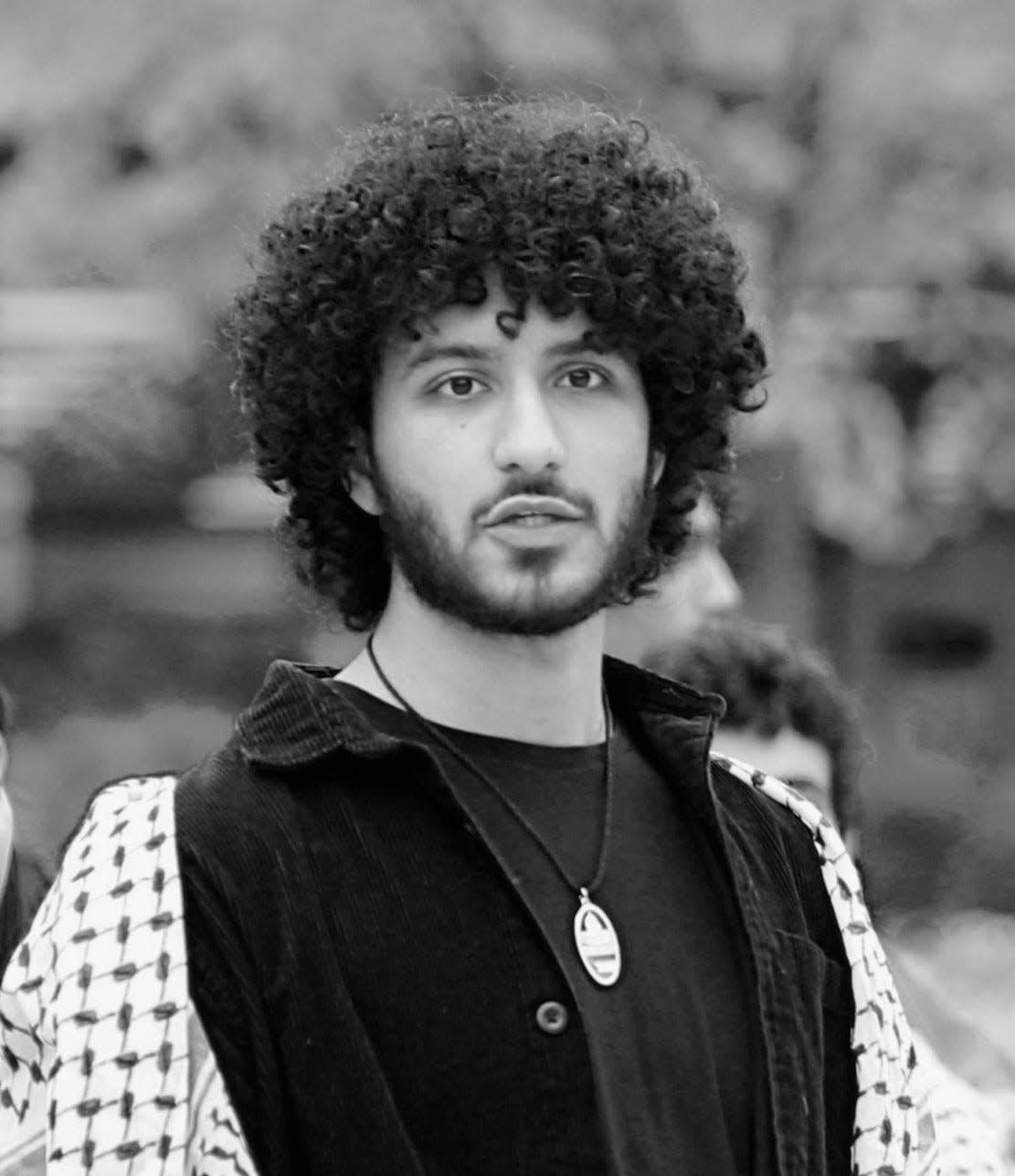Voices of Faith: Muslim reflects on May 4 tragedy as war rages in Gaza

As we approach the anniversary of May 4th, 1970, our hearts are heavy with thoughts of the Kent State Shootings. The memory of those protesting students weighs upon us, reminding us of both the potency of our voices and the desperate measures taken to stifle them.
In remembering those who were martyred, we are called to reflection and to action. We strive to honor their sacrifice by continuing their legacy of standing against war and imperialism, ensuring that their voices, though silenced, resonate through our ongoing efforts for justice.
As we navigate the complexities of our present and future, we must heed the lessons of the past. Our educational institutions bear a solemn responsibility to incorporate these truths into their decision-making processes, ensuring that history's painful chapters are not forgotten but serve as beacons guiding us toward a more just and equitable future.
As a Muslim, I find these principles of justice deeply ingrained. From a young age, I was taught that the believer must strive to end injustice wherever it may manifest itself. And if action and speaking out are not possible, then, at the very least, harbor a steadfast opposition to oppression within one's heart. These teachings echo the universal call to work for equality and justice always.
May the memory of those who perished at Kent State inspire us to continue the journey toward a world of justice, compassion and understanding.
As students across the country gather on their campuses, they demand their universities divest from Israel. Their protest, born from the heart-wrenching genocide in Gaza, stands as a fervent cry for justice amidst profound suffering. With tens of thousands of lives lost, the majority of them women and children, the urgency of their cause is undeniable. It’s a pivotal moment in a longstanding struggle for U.S. schools to divest, echoing past movements for justice and equality.
In 1985, activists successfully pressured Columbia to divest from companies operating in apartheid South Africa, setting a precedent for principled action. These courageous students seek an administration guided by those same moral principles, willing to stand against injustice.
Yet, their peaceful protests are being met with harsh reprisals. Many protesters have been arrested, and students face suspension without due process, sparking widespread condemnation. Faculty members are staging walkouts in solidarity, and protests are erupting across numerous campuses, echoing the cries for justice from Columbia to Palestine.
Reflecting on these parallels underscores the importance of honoring our past while facing present challenges. Each encampment, each act of resistance continues the legacy, demanding we stand against injustice.
Youth-led movements are a powerful gauge of whether one stands on the right side of history. Just as young people bravely opposed the Vietnam War and continue to champion causes against police brutality, gun violence, the climate crisis, and the tragedy unfolding in Gaza, future generations will see these struggles as symbols of bravery and justice.
Reflecting on history, we find a parallel in the emergence of Islam, first embraced by the youth. Islam's transformative ideals threatened existing power structures, and early Muslims faced repression from the establishment. Yet, through unshakable faith, the youth of that time persevered, and Islam endured, making a lasting impression on humanity.
Today, by standing with and amplifying the voices of young activists, we uphold the timeless principles and Islamic values of justice, compassion, and equality upon which a humane society is founded. We honor the legacy of those who came before us and pave the way for a more just and equitable future for all.
Yaseen Shaikh is the director of public relations for the Islamic Society of Akron and Kent.
This article originally appeared on Akron Beacon Journal: Muslim reflects on May 4 tragedy as war rages in Gaza

